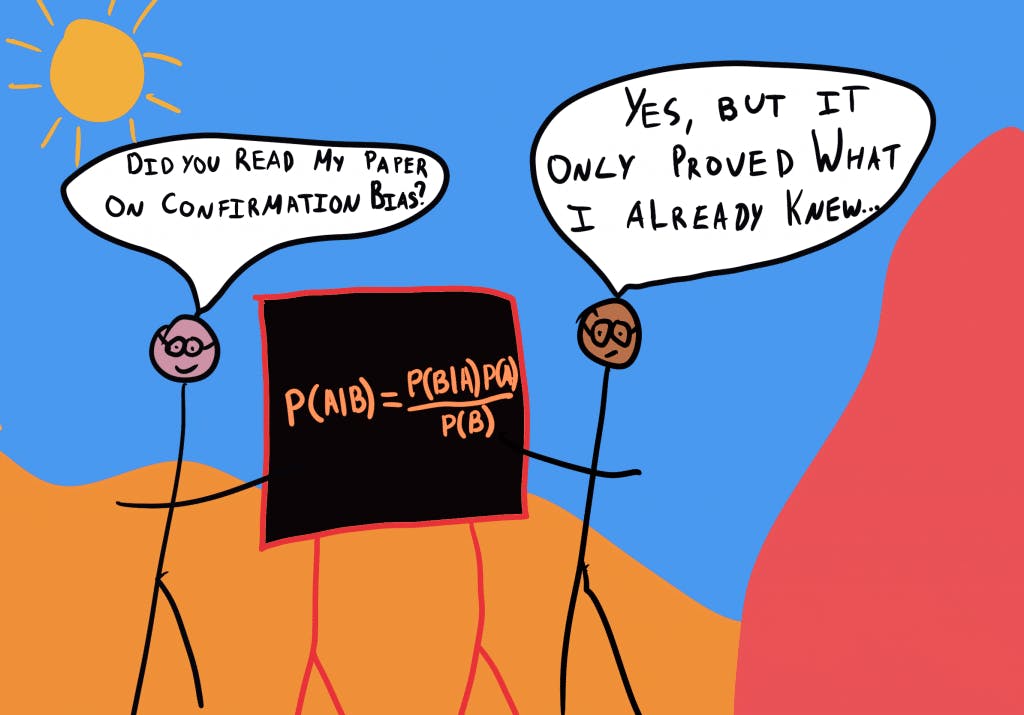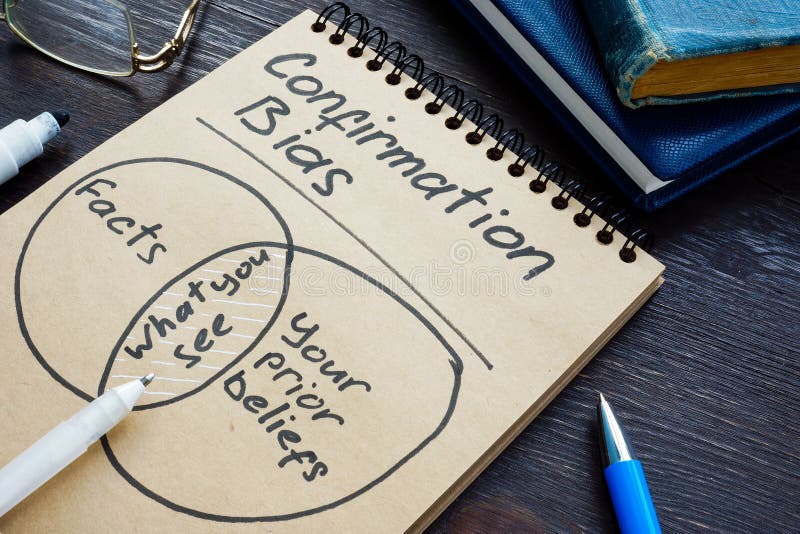"Confirmation Bias:" a hot topic word heard often, but often not defined adequately. When looking at the way confirmation bias is discussed in the media, it is often described as "impartial," "invalid," and "unnecessary." Though this can sometimes be used to describe the term, it does not truly encompass the entire theory. Ironically, the word confirmation bias in the media is often surrounded in defensiveness and pointing fingers at others on the big bad "other side" for having it. However, this reaction in itself is exactly what confirmation bias really is.
When looking at what the exact definition of confirmation bias is, the Oxford Dictionary describes it as "the tendency to interpret new evidence as confirmation of one's own existing beliefs or theories." This can also be described as "cherry picking." Picking and choosing which evidence to remember and acknowledge to support your ideas both formally and simply in one's head. Most of the time, this will happen unconsciously, for the most part, because the brain naturally will do this in order to support a thought process and avoid restarting a new one. It is, in lay terms, a cognitive shortcut.
Whatever one's belief may be, cognizant or not, it is with confirmation bias that a person will mentally or physically support their claim. In the example I used in the beginning, accusing the "big bad other side" for having confirmation bias, it would indeed be ironic due to the fact that one who already thinks that "the other side" is bad is confirmation bias in itself. The alleged "good side" would take any example of something "bad" as confirmation bias and apply it directly to the "bad side"; therefore the majority of their evidence would support their claim that the other side is bad.
 Confirmation bias is seen everywhere, but a good place to start if actively seeking out real world examples of it would be in politics. It can rarely be debated that both political parties in our two party system are not notorious for throwing opposing viewpoints under the bus and picking specific evidence and completely ignoring other pieces in order to support their claims or opinions.
Confirmation bias is seen everywhere, but a good place to start if actively seeking out real world examples of it would be in politics. It can rarely be debated that both political parties in our two party system are not notorious for throwing opposing viewpoints under the bus and picking specific evidence and completely ignoring other pieces in order to support their claims or opinions.
Not only does confirmation bias block the original thinker, but additionally, whomever is on the potential receiving end of hearing their claims and information. This is how false or non-encompassing news, echo chambers, censorship issues, black and white thinking, prejudice, and a lack of education on important topics germinate. Having an incredibly malevolent impact, it is important to find information from a variety of sources.
What is important to note is that all human beings have inherent biases, leading to all humans having the experience of confirmation bias in their life. The person in the example above has confirmation as does the "other side," the opposing viewpoint of whatever he or she believes. Because this is a universal experience. Like it or not, we have all used confirmation bias at one point or another, most often, without even noticing.
Though confirmation bias is inherently harmful, it is important to accept the fact that we as humans have all done it and fallen victim to it. Not only noting it in others, but also taking personal responsibility for times confirmation bias got te best of us is an important part of becoming more aware. Respectfully spreading awareness of confirmation bias and becoming educated on what it entails and how to combat it are the first steps to allowing your community to become as impartial as possible in whatever mental or physical data collection is occurring. 
Though COVID-19 may be less prevalent in 2023, confirmation bias continues to be an epidemic. With social media more active than ever, viewers must take every piece of data they come across with a grain of salt. Formulating opinions must involve attaining information from all viewpoints in order to truly be informed on what one is believing.
No comments:
Post a Comment